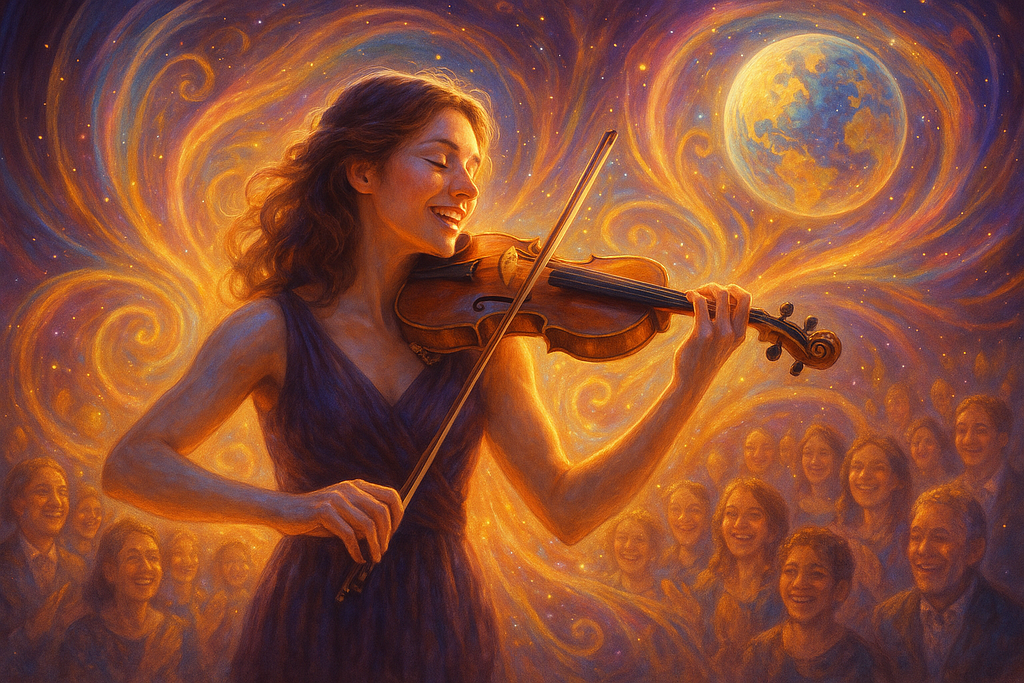Has technology made us less creative and less connected as a society? After all, not that long ago, our Saturday evenings would have been spent gathered around someone’s piano, singing our favorite songs. Many of us now choose to listen to recorded music or watch TV alone at home. What’s the role of technology in this shift?
In this video, I share some insights about this shift and what you can do turn it around in your own life. This video features an excerpt from my upcoming book, and is the 2nd in a series about how money, technology, status, and power cheapen the arts in our society.
Be among the first to know about my upcoming book “Soulforce Arts: The Vital Role of Musicians & Other Artists in a World That’s Lost Its Mind” by signing up for my mailing list.
Joseph Arnold Violinist, Alexander Technique Teacher, Director of the Soulforce Arts Institute
We Used to Sing Together
Excerpt from my upcoming book
The cheapening of the arts is also partly due to the increasing role of technology. Even though, in general, technology has improved our lives in countless ways, it often carries a hidden cost. In the arts, it has led to the loss of creativity and connection. A clear example of this is recorded music. On the one hand, recorded music has brought incredible benefits to society, including the ability for audiences to hear music from faraway places, and for artists to share their music more widely. But recorded music is now so ubiquitous and inexpensive that, for example, many people throwing a party now choose to just plug in an iPod rather than deal with the hassle of a live band. This trend, writ large, has led to a massive decline of live music in our society. The result is that, even though many of us still love live music, many more of us are now so accustomed to canned music that we no longer really realize what we’re missing.
Another hidden cost of recorded music technology is a decline in our creative abilities. The power and ease-of-use of recording technology is now such that anybody can program a beat with just a few clicks of a computer mouse. The upside is that we can make a decent-sounding beat without going through the laborious, years-long process of becoming an accomplished drummer. But skipping this hands-on learning process has a hidden consequence: it robs us of the full richness of the creative experience. It’s not that programming beats on a computer is somehow inherently less creative than playing a drum set. Rather, the real-world process of becoming an accomplished drummer grants access to a deeper experience of creativity, mastery, and accomplishment than is otherwise possible. The result of the ever-increasing use of recording technology is that fewer and fewer of us have a felt sense of being a truly creative person.
A further cost of recorded music can be seen in the disintegration of community in our society. Not that long ago, our Saturday evenings would have been filled by gathering around a piano in someone’s parlor and singing our favorite tunes. This would bring people together and affirm a sense of belonging. But the ever-increasing predominance of recorded music has undermined this source of human connection. Nowadays, the vast majority of music is passively consumed, usually in isolation, and while staring at a screen with headphones on. All too often, technological advance, in the arts and elsewhere, comes at the cost of the full experience of creativity and connection.



